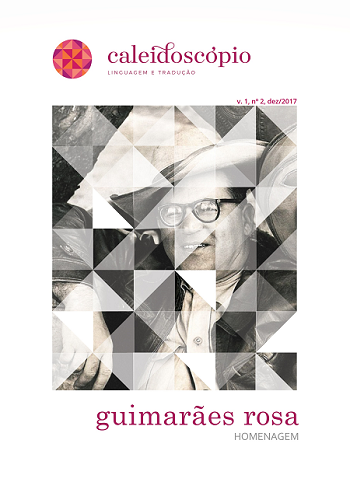La traduction littéraire ou l'art de « faire refleurir les déserts du sens »
DOI:
https://doi.org/10.26512/caleidoscopio.v1i2.7091Keywords:
Literary translation;, Creativity;, Rewriting;, History of translating;, Poetics.Abstract
Literary translation is essentially a creative process of rewriting. The translator is the author of the translation text, even if he is not the author of the original text. A translation is never a clone of the original. In translating, we do not say the same thing differently, we say something else differently, as Henri Meschonnic put it. Concepts borrowed from the field of history of translation, like historicism, passive retranslation and active retranslation are used to go against those who still erroneously think that the meaning of a literary text lies only in its words, and claim that “we translate words because there is nothing else to translate”. Against this linguistic and literary approach, the poetics approach takes into account the fact that, between the author and the reader, the translator is an active and creative agent in the process. Translating is always a “ménage à trois”.
Downloads
Downloads
Published
How to Cite
Issue
Section
License
Copyright Notice
- Authors retain copyright and grant the journal right of first publication with the work simultaneously licensed under a Creative Commons Attribution License that allows others to share the work with an acknowledgement of the work's authorship and initial publication in this journal.
- Authors are able to enter into separate, additional contractual arrangements for the non-exclusive distribution of the journal's published version of the work (e.g., post it to an institutional repository or publish it in a book), with an acknowledgement of its initial publication in this journal.
- Authors are permitted and encouraged to post their work online (e.g., in institutional repositories or on their website) prior to and during the submission process, as it can lead to productive exchanges, as well as earlier and greater citation of published work (See The Effect of Open Access).




.png)
